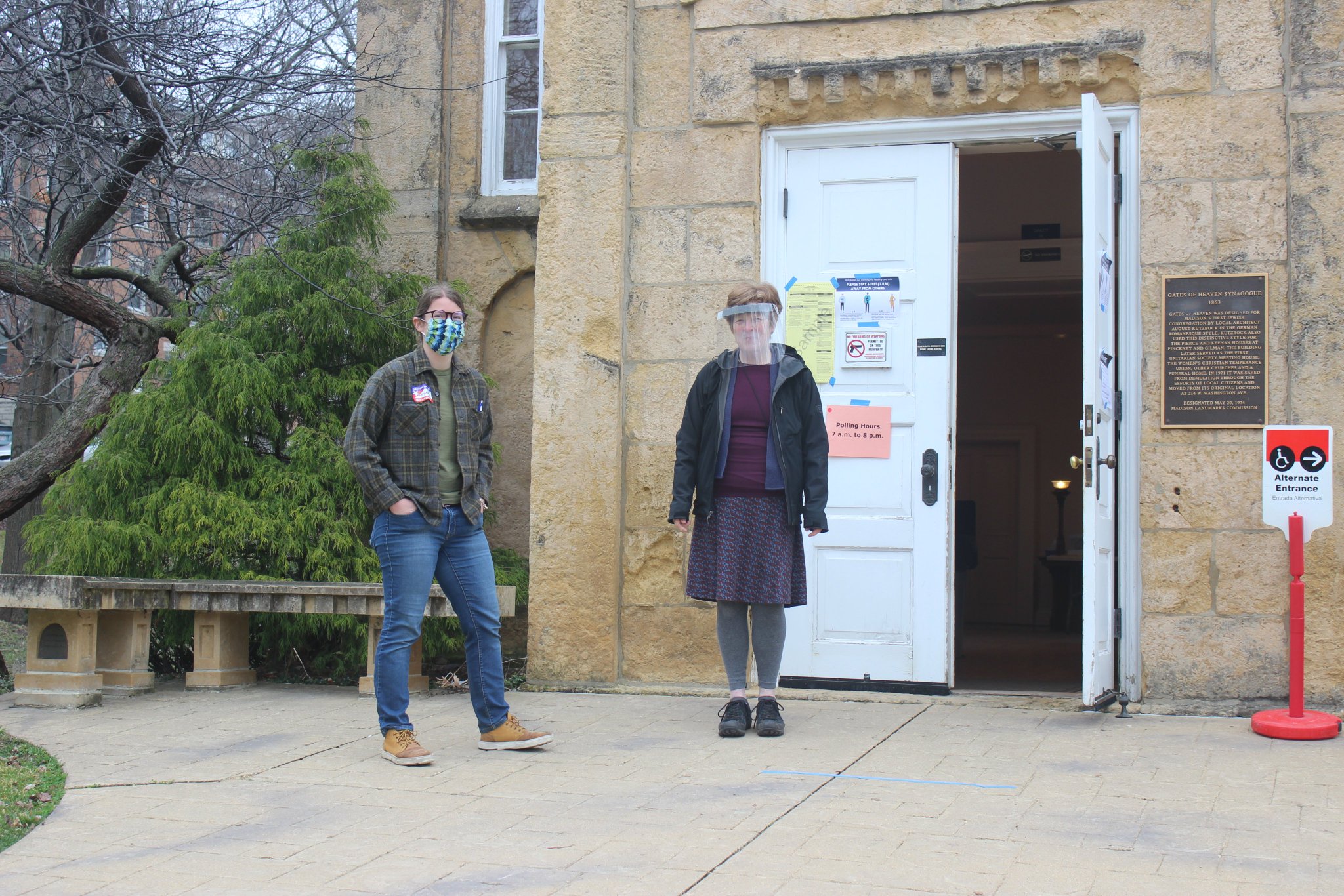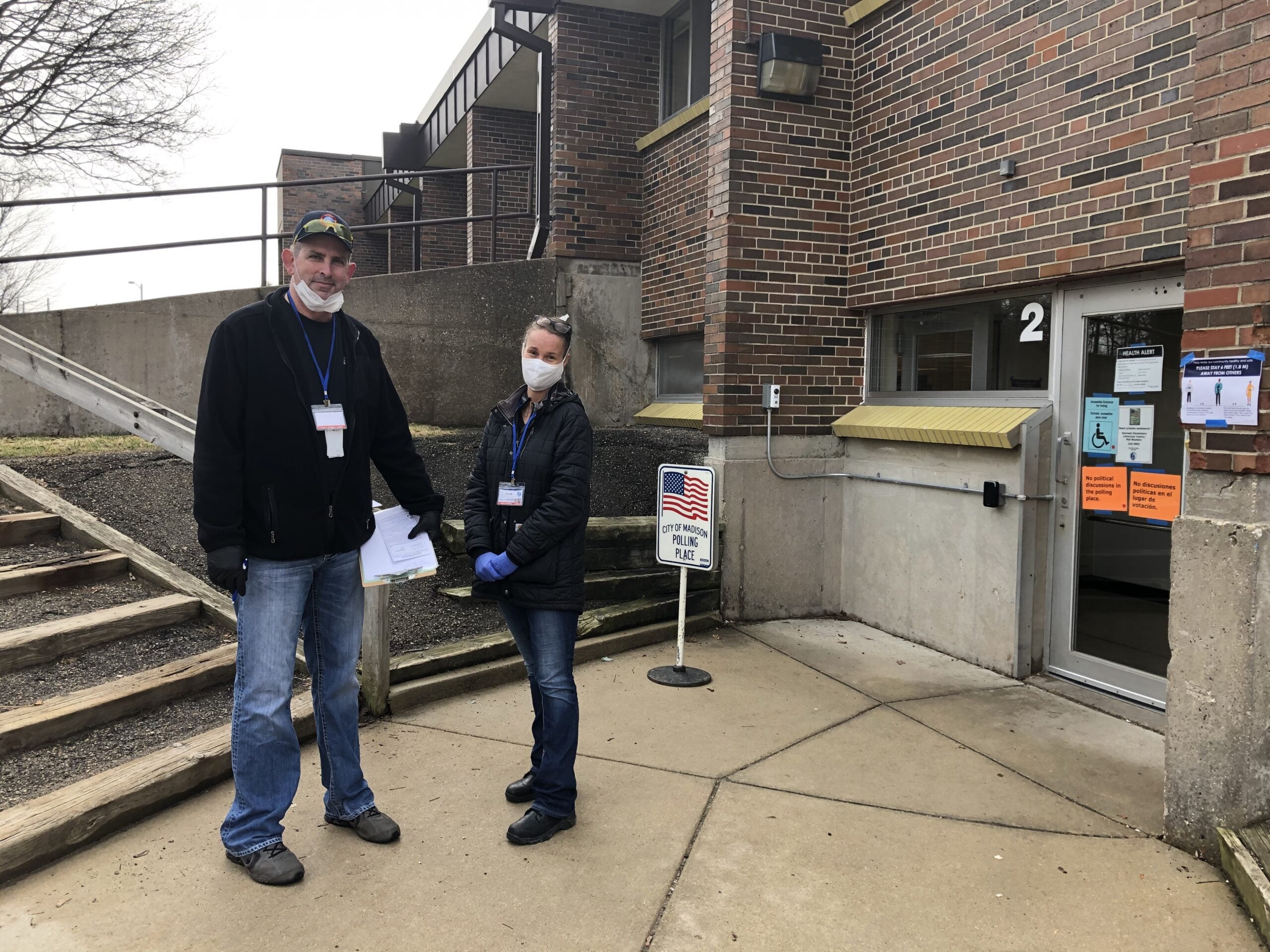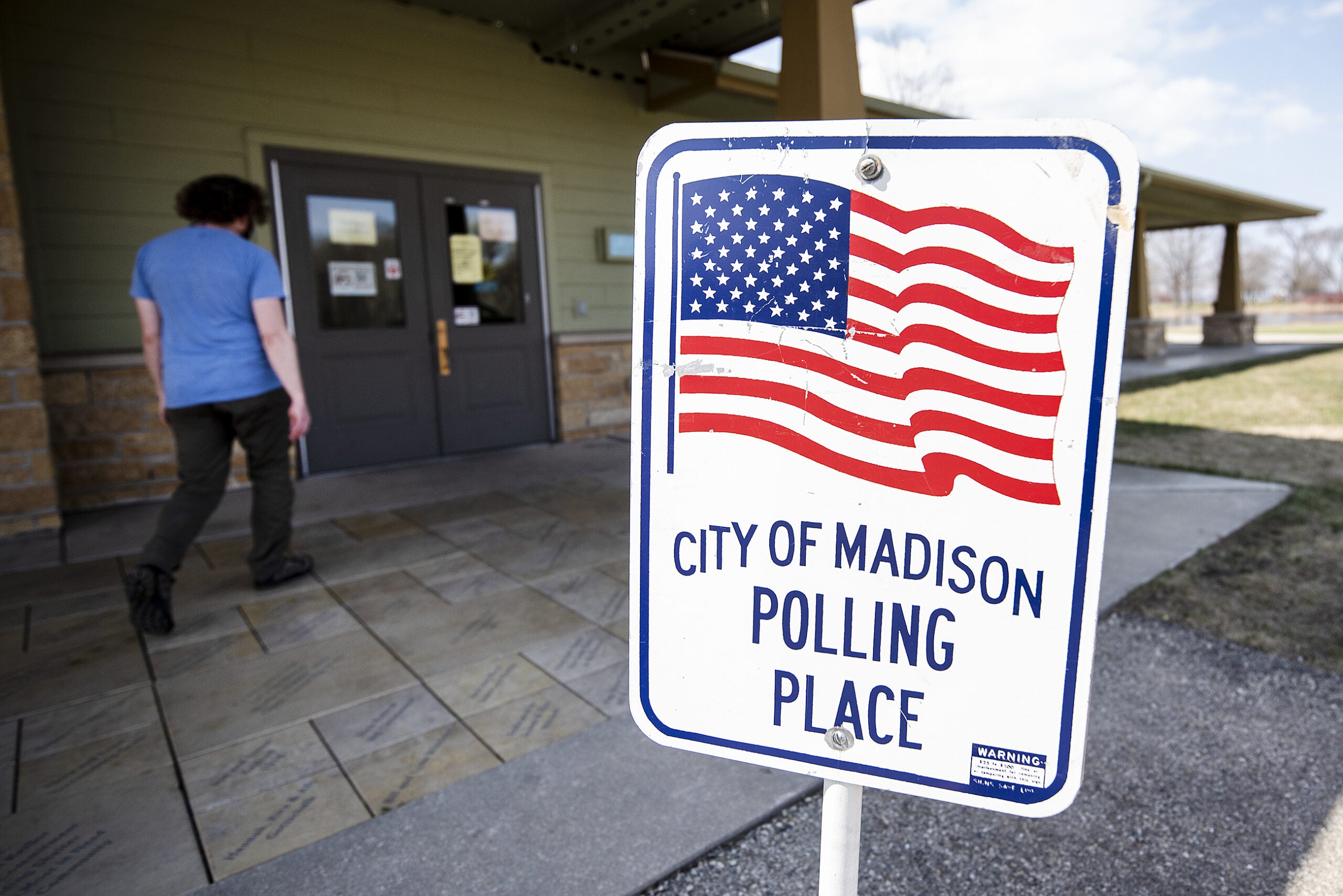For Madison City Clerk Maribeth Witzel-Behl, Wisconsin’s Tuesday election has been “surreal.” When asked how it compares to others, she said there’s no way to even describe it.
While there has been political and legal wrangling about whether to hold the election during the outbreak of the new coronavirus in recent days, election officials have been prepping polling sites for weeks to keep both voters and poll workers safe with limited resources during the pandemic.
In Madison, the city Engineering Department installed plexiglass barriers, poll workers assisting curbside voting are wearing plastic shield masks and hand sanitizer dispensers wait for voters when they arrive and when they leave.
News with a little more humanity
WPR’s “Wisconsin Today” newsletter keeps you connected to the state you love without feeling overwhelmed. No paywall. No agenda. No corporate filter.
Gloves are also available for poll workers, Witzel-Behl said, but they’ve been clear that the Centers for Disease Control and Prevention cautions gloves can offer a false sense of security — you still need to be vigilant about cross contamination.

At the 66 polling places around the city of Madison, they’ve been able to provide 12 masks per polling place — not enough for each poll worker, Witzel-Behl said, but something.
Under normal circumstances, the city would offer 90 polling places and more than 3,000 poll worker shifts. But Tuesday, they scheduled only 1,700 shifts.
Public Health Madison and Dane County has been guiding the city on how to run the election amid the COVID-19 outbreak. Voting booths are sanitized after each use and voters have been encouraged to bring their own ball point pens.
That’s been a common practice in other municipalities such as Eau Claire, where a designated safety person is stationed at each polling site to make sure social distancing procedures are being followed, and where a cleaning person is on hand to sanitize frequently used areas.
In central Wisconsin, Wausau city clerk Leslie Kremer said several hand-washing stations are available at five polling sites and sneeze guards are set up at tables to protect poll workers and voters.
In Cable, in northwestern Wisconsin, election officials are exclusively relying on curbside voting, which has voters driving up to the door of the local community center and meeting poll workers at the window who check identification and provide voters with ballots.
Yet some city officials are worried about voter turnout despite efforts to keep polling places safe.
Election officials in Madison and Milwaukee said they’ve received many calls and emails from angry voters who didn’t receive their absentee ballots, or are upset the election is happening.
“Voters are really frustrated and we share their frustration,” Witzel-Behl said. “We worked as hard as we could, as many hours as we could, every night until we could no longer focus our eyes to try to get ballots out.“
“And still, we have voters who haven’t seen their ballots in the mail,” she continued.
To be counted, absentee ballots must be postmarked by election day, April 7, and received by April 13. Voters who have not received their ballots, or are unable to vote absentee, must then vote in person.
Municipalities such as Cable and Eau Claire are seeing significant increases in the number of absentee ballot requests, but they’ve also had to get creative to properly staff polling places to accommodate in-person voters.
Mackenzie Reed-Kadow, deputy city clerk of Manitowoc, said they’re relying on many new poll workers this election because their more seasoned poll workers tend to be older, putting them at a higher risk for severe symptoms related to COVID-19, and many have opted out for this election, she said.
“We’re doing what we can with what we’ve got,” Reed-Kadow said.
City employees in Manitowoc have stepped up to work the polls, and they also have members of the National Guard that have been trained by the state Elections Commission. But still, they’re operating with between 50 and 60 poll workers — they had planned to have at least 70.
In Milwaukee, about 170 National Guard members are helping out at five polling sites covering 180 wards, said Jim Owczarski, Milwaukee’s city clerk who has a backup role to the city’s Election Commission.
That’s part of the more than 2,400 Wisconsin National Guard members across the state that have been deployed to help cover a shortage of poll workers in nearly 60 percent of Wisconsin municipalities.
Milwaukee’s Owczarski said the city’s election commissioner Neil Albrecht spent the weekend training members of the National Guard for their upcoming role in Tuesday’s election.
Owczarski said he hadn’t heard much support for in-person voting going forward Tuesday but, “on the other hand, there’s an absolute determination to comply with the law,” he said.
Wisconsin Public Radio, © Copyright 2025, Board of Regents of the University of Wisconsin System and Wisconsin Educational Communications Board.






